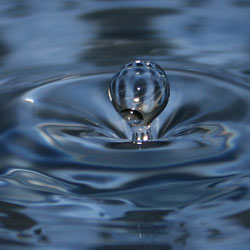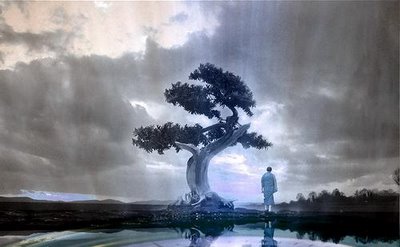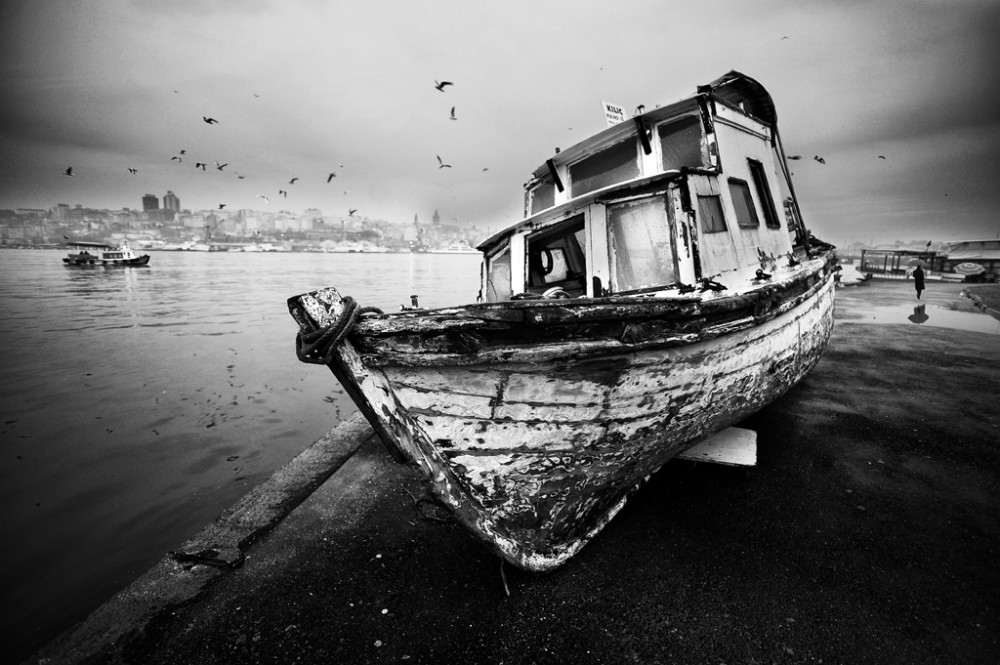Thoughts and emotions arise and pass by like leaves and twigs on the water. Watching them without interference, without trying to do anything about them, the mind quiets and the river of consciousness clears of debris. Then there is just pure, flowing water.
 One feels it’s a good sitting when psychological time ends and one doesn’t want to leave. One also feels, ‘I could physically die at this moment and be happy.’
One feels it’s a good sitting when psychological time ends and one doesn’t want to leave. One also feels, ‘I could physically die at this moment and be happy.’
It’s not a morbid thought or feeling in the least, but a sense of having made a friend of death, and no longer fearing it, at least for a few timeless minutes. Perhaps living rightly is a matter of practicing dying every day, so that when one physically dies, it’s as easy as exhaling.
I’ve known people who have died in terrible fear, and others who have died very peacefully. In the first instance, a man was so petrified at the end that he refused to sleep, and died with his eyes frozen open in terror.
But I had a close cousin who, like me, dropped Catholicism in his youth, though later, like on old-school Catholic, he fathered six kids.
He worked himself into an early grave, but his mysterious cancer allowed him to be with his wife and children during his last year. He and his wife felt it was a kind of grace though, since he was fully in his childrens’ lives that last year.
I visited his wife after he died and she described his death in detail. It was a beautiful morning; they were talking, and the sun was streaming in through the skylight, falling onto the couch where he sat. She turned away for a minute, and when she turned back, he was gone, sunlight on his face.
It’s the greatest paradox, but without drinking from the infinite well of death regularly, life becomes a barren desert. Ending time means entering the house of death while fully awake and alive. One emotionally experiences the fact that life and death are one.
In a deep state of meditation, there are no tasks, neither in the mundane world nor in the spiritual dimension.
Urgency, the essential drive of life within the questing and questioning human being, also ends when one enters the timeless, deathless state, though it returns when one returns to one’s life and the world. Buddhist aficionados call it ‘samadhi,’ but the name doesn’t matter.
“When spiritual tasks are understood, some people feel motivated to accomplish goals that are for the highest welfare of all,” I read today. That strikes a chord, but also hits a nerve.
“Spiritual goals are possible provided they can be physically realized.” This is the question I’ve been grappling with of late. Is the revolution in consciousness that’s indispensable to change the disastrous course of humankind even possible at this point of human history?
In this age of extreme egocentrism, cynicism and materialism, are enough people around teh world actually turning within and awakening through self-knowing to provide the soil for a psychological revolution?
Since a global psychological revolution has never happened before in human history, and since no teacher, however illumined has brought it about, what makes one think that it can happen now, and be achieved by ordinary human beings?
Perhaps that’s the only way it ever could. Ultimately however, it’s simply a task, flowing from the timeless. And all tasks are secondary to fully awakening and drinking from the infinite well of deathless death.
Martin LeFevre

